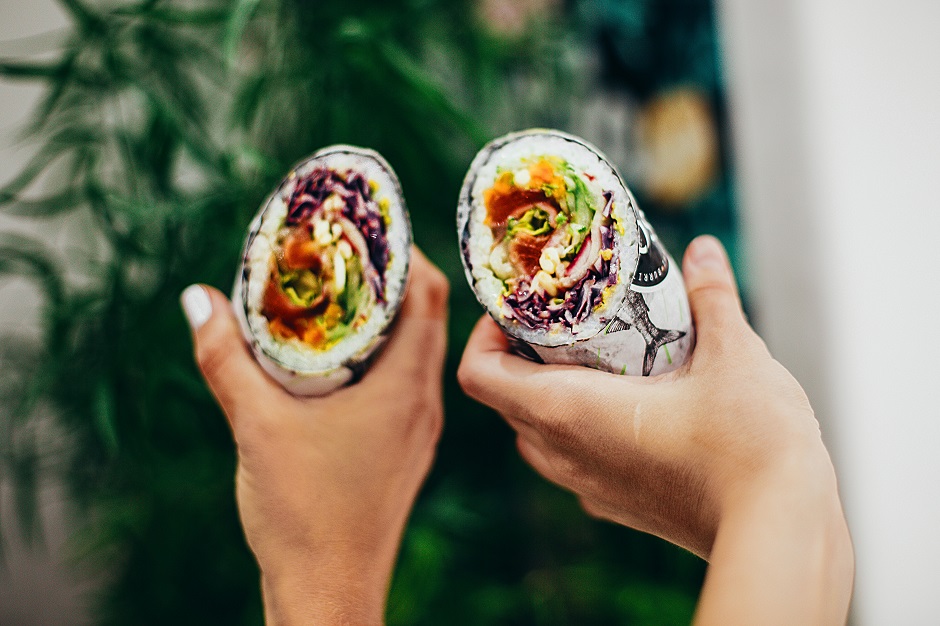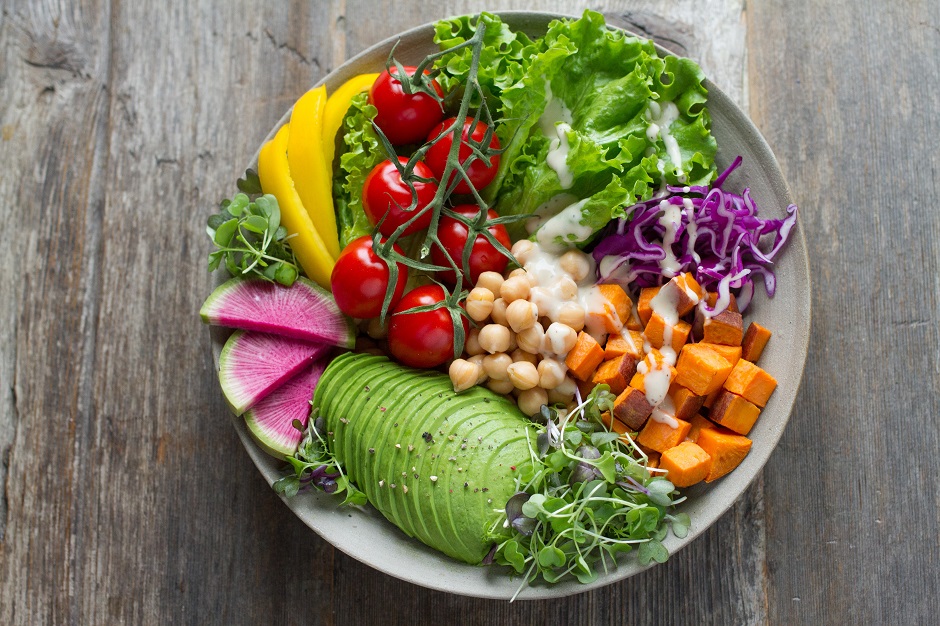There is no doubt about it. The popularity of meat-free lifestyles is on the rise in the UK.
In fact, the 1st of October last week celebrated World Vegetarian Day, with next month being designated World Vegan Month as well. The very existence and significance of these internationally celebrated days can be used itself as an indicator of the lifestyle's growing status.
With demand for meat-free choices increasing in the UK, food retailers and manufacturers have been quick to increase their supply. Find out how the food service industry is responding to these lifestyle trends and why it can make commercial sense to increase the number of meat-free choices on your menu.
With such strong evidence that the previously overlooked meat-free movement is becoming ‘mainstream’, diversifying your menu to cater for both vegetarians and vegans is seemingly a no brainer.
Veganism and Vegetarianism is Growing in Popularity
Meat-free living is one of the fastest-growing lifestyles in the UK, so why are vegans and vegetarians still complaining of menus that offer ‘boring’ alternatives when they venture out to dine?
Offering a greater choice of tastes, textures, and flavours for a modest percentage of the population has traditionally raised concerns over returns on investment.
But a marked increase in worldwide consumer interest in animal-free products means that rethinking menus to offer a wider choice of meat-alternative offerings makes commercial sense.
The Vegan Society reported that demand for meat-free food in the UK increased by 987% in 2017 and going vegan has continued to be the biggest food trend since. Nearly a quarter of Brits consumed plant milk in 2019 and 56% of Brits adopt vegan buying behaviours, according to research carried out by Opinion Matters.
In addition, a record number of people took part in Veganuary 2020, official figures have shown, as new vegan products flooded Britain’s high streets.
Over 400,000 Brits sampled the vegan lifestyle this year, up 150,000 compared to the 250,000 in 2019 and far exceeding their target of 350,000. The fact that the event only attracted 3,000 participants for its inaugural campaign back in 2014 is an indicator of growing interest in the meat-free lifestyle.
Veganism vs Vegetarianism
Self-identified vegans and vegetarians account for approximately 3% of the UK population, but they are amongst a broader base of people showing an interest in reducing meat and dairy intake.
Mintel, a leading global market analyst, reports that at least 11% of Brits have attempted to follow a vegan diet in the past. Mintel have also reported that the number of self-identified carnivores eating meat more than 10 times per week has dropped 14% since 2015.
So, these lifestyles both seek to reduce meat consumption. Then what’s the difference?
Veganism is a lifestyle that seeks to eliminate, as far as realistically practicable, all forms of exploitation of, and cruelty to, animals for food, clothing or any other purpose.
For the above reason, vegans share a common plant-based diet, stripped of all animal-derived foods such as meat (including fish and insects), dairy, eggs and honey.
On the other hand, vegetarians allow themselves more flexibility. Similarly to vegans, they avoid all meat, such as poultry, game and fish. However, vegetarians still consume dairy, eggs and honey in their daily lives.
Alongside veganism and vegetarianism, there has also been a marked increase in the number of brits identifying as ‘flexitarian’. Flexitarians are individuals who seek to reduce their meat intake, but without wanting to adhere to the strict ‘all or nothing’ ethos of meat avoidance.
Why Do People Decide To Follow a Meat-Free Lifestyle?
Traditionally, there have been three motives assigned to those that follow a meat-free lifestyle. Whilst these are definitely the most influential, each individual will likely have their very own personal reasons as to why they choose to follow a meat-free lifestyle.
-
For the animals
The prevention of exploitation of animals, whilst not being the only reason for becoming meat-free, remains the overriding factor for many to go and maintain a meat-free diet. For many, going vegan or vegetarian is one of the easiest and most obvious steps one can take to eliminate their contribution to animal cruelty and exploitation. By refusing to pay for animal products, demand for animal products will be reduced, resulting in the diminution of the industry. This transition can be seen now with Sainsbury’s, the national retail giant, saying ‘meat-free sales are up and meat is on decline’.
-
For their health
A balanced meat-free diet contains all the nutrients that our bodies need (there is an emphasis on ‘balanced’, however). A variety of research has found a positive link between a meat-free diet and lower blood pressure and cholesterol levels, and lower rates of heart disease. Mintel, a global research company, found that nearly half (49%) of people asked cited health concerns as the main reason for reduced meat consumption.
-
For the environment
Making the switch to a meat-free diet, for many, is the most effective way of reducing their impact on the environment. Researchers at the University of Oxford found that cutting meat (and dairy) products from your diet could reduce an individual's carbon footprint from food by up to 73%. Not only does this switch represent a substantial drop in greenhouse gas emissions and thus’ global warming, it would also free up land lost to agriculture, one of the primary causes of wildlife extinction.
The Food Service Industry Has Started To Listen
In recent years, the food service industry has been relatively slow to evolve to growing demand from both vegans and vegetarians.
However, from 2017, a more responsive trend has been seen. All major supermarkets offer their own meat-free ranges, be them meal deal options or plant-based meat alternatives. Major high street chains such as Wagamama’s, Pizza Express, Frankie and Bennie's and Pizza Hut have their own separate vegan menus and vegetarian options, with new options hitting them every month. Even Ikea’s ditching meat, in its entirety, for its Christmas menu again this year.
The meat-free sector is booming. The production of ‘vegan meat’ that imitates the real thing is the biggest thing in tech right now. It has attracted major investment from famous patrons such as Microsoft founder Bill Gates and Oscar-winning actor Leonardo Di Caprio.
In-fact, there are labs cropping up all over the United States at the moment - their sole purpose to grow meat in a controlled state in a laboratory. Exciting!
Ensure Your business is ‘Meat-Free’ Friendly
Due to the growing popularity of the meat-free diet, and the bar that has been set elsewhere, vegans and vegetarians alike expect a wide range of choice – a jacket potato with some veggies will no longer suffice. You need to modernise your menu.
The process of modernising your menu to become ‘animal derivative friendly’ may seem daunting, but it shouldn’t be. Let your creative juices flow and use this opportunity to reinvigorate your offering and create some excitement around what you produce, be it an internationally inspired meal or a seasonal latte.
Substitute meats and dairy for lentils, chickpeas, soya, oat milk or soya milk. Take a customer favourite and create a meat-free alternative. This ensures you won’t alienate an important consumer group and creates a sense of inclusivity; all things in which vegans and vegetarians have come to expect.

It can be as simple as stocking a variety of plant-based milk to give customers the freedom of choice to alter your coffees. There are around 20 plant-based milks, with options including cashew, pistachio, chia, sesame and hemp seed milks. However, the popular sellers are oat, coconut, almond and soy. Of course, it’s not practical or economical to stock every type of plant-milk mentioned above. But it’s best practice to offer at least 3, focusing on the popular sellers.
Alongside your plant-based milk selection, consider switching to vegan syrups for your coffees. This is an additional nicety, giving your vegan customers one more reason to return to your café.
In terms of food, the possibilities are endless. Now veganism has become more popular, there are an abundance of recipes online, making it easier than ever to find and create vegan foods.
However, if you wanted to keep it simple, you could offer a vegan sandwich, a vegan biscuit or a vegan muffin, all of which are staples in cafes nationwide!
Profiting From Meat-Free Alternatives
Increase Customer Base
Customers will perceive you as a more inclusive business when you offer a range of meat-free options. In addition to this, you’ll also appeal to a broader market: vegans, vegetarians and importantly ‘flexitarians’, of which there are currently an estimated 22m in the UK. That’s not to mention those who are just curious and simply want to enjoy an alternative experience.
Due to the vegan community being so tight knit (just have a look at their Facebook pages!), they’ll likely tell their friends and family, which can lead to invaluable, free word-of-mouth marketing for your business.
Stay Competitive
In our continuously evolving society, it’s more important than ever to ensure that you keep your business up to date with current market trends. If your business offers vegan options, but a competitor of yours doesn’t, ceterus paribus you will likely receive more customers. Likewise, if a competitor of yours is doing something that you’re not, it’s important to ask yourself why you’re not doing that certain thing.
Increase in Group Bookings/events
When you go out to eat with a group, you want to make sure wherever you go has something for everybody to eat. With 1 in 5 Brits saying they know a vegan (The Vegan Society), there’s a higher chance than ever that groups of individuals will be searching for meat-free options.
Having a variety of meat-free dishes will increase the chances of winning those larger group bookings and ensures you’re not missing out on more than just the vegans, vegetarians and flexitarians.





